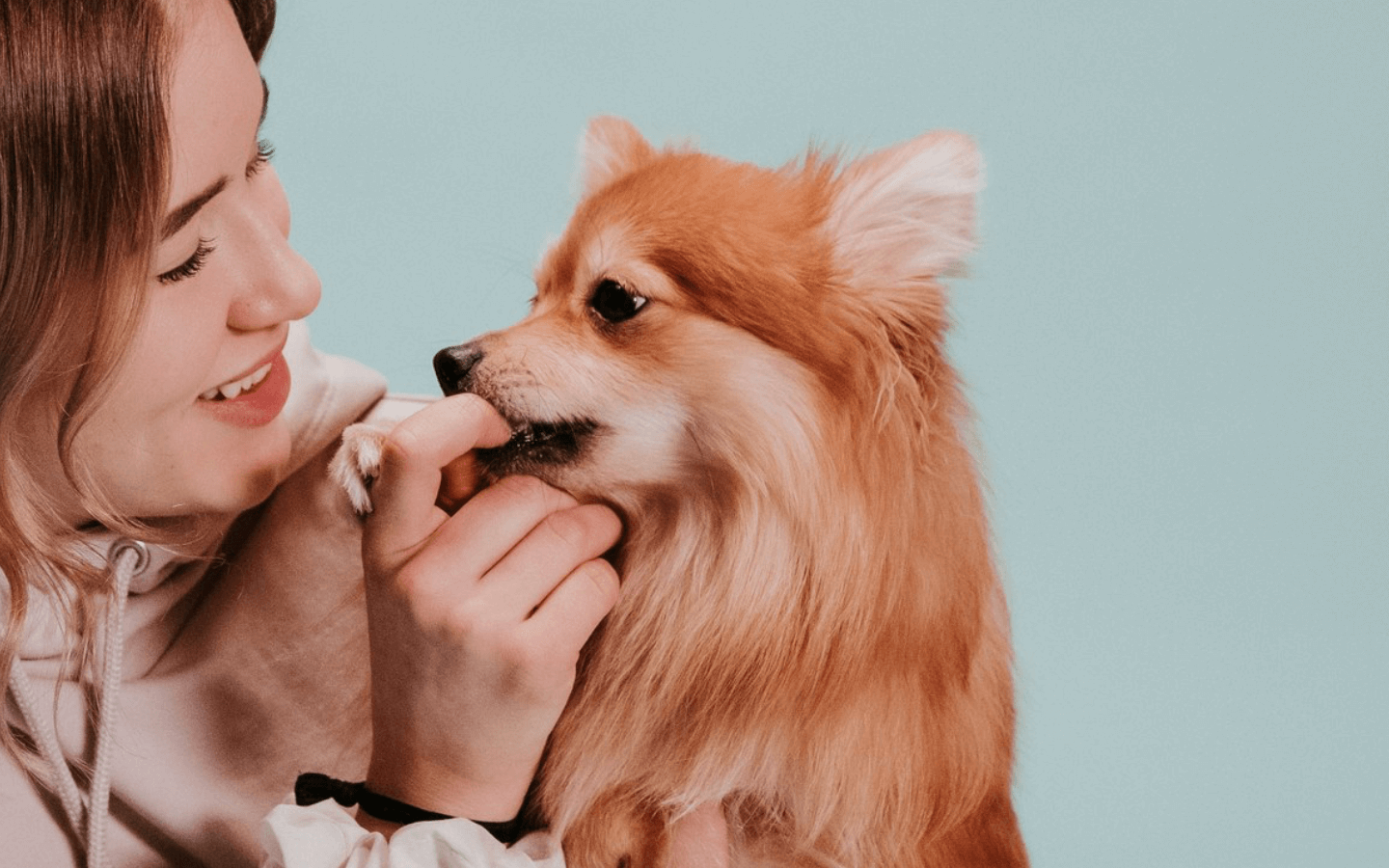When you become a new puppy parent, there’s lots to learn. But don’t worry, it’s all new for your puppy, too, so he’ll be right there learning with you!
Knowing how to take care of your new pup’s teeth and get him through the teething stage is a big part of puppy parenting. And establishing good oral care habits now will help to ensure that your puppy’s teeth stay healthy into adulthood.
Here’s everything you need to know about dog and puppy dental care, from relieving teething pain and oral care basics to potential issues you’ll want to be on the lookout for.
Let’s start with the basics of puppy teething
Just like us, puppies are born without teeth. Your puppy’s milk teeth, or puppy teeth, will begin to come in when he’s between three and six weeks old.
By the time he’s 12 – 16 weeks old, your new little buddy will have 28 super-sharp, tiny teeth. Some of his puppy teeth may fall out before the rest even appear, in order to make room for his adult teeth.
The beginning of the teething stage takes place when your puppy’s adult teeth start to come in. Most puppies will have all 42 of their adult teeth by the time they’re six months old.
A dog’s teeth are used for more than just eating. They also use them to communicate (such as when they snarl), as a tool for carrying things like toys, and for grooming themselves.
And, as you’re about to learn, puppies love to use their teeth to investigate the world around them.
The puppy teething stage
The puppy teething stage is a challenging time for your puppy because it can be painful when his adult teeth push through the gums. It’s also challenging for you because a teething puppy will have a very strong urge to bite and chew, on everything from your favorite shoes to your fingers, in an effort to relieve the pain and help his new teeth come in.
Keep in mind that puppy breath is completely normal during the teething stage. Sometimes there’s a bit of inflammation when the teeth are breaking through the gums, which can cause bad breath. Your puppy’s breath should improve once all of his adult teeth have come in.
One of the best ways to help your puppy through this time is to offer special puppy teething toys, much like you would for a human baby. Look for toys made from chew-proof hard rubber or plastic (like a Kong or Nylabone), so your puppy can’t chew off pieces and swallow them, turning them into a choking hazard.
Puppy teething toys that allow you to hide treats or kibble inside are a great choice because they encourage your puppy to chew and distract him from the pain. Bonus points if they can go in the freezer to provide some pain relief, too!
Teething toys are also a great tool for redirecting your puppy’s attention away from things he shouldn’t be chewing on. Whether he’s chomping on your hand or your tennis shoes, distract him with a safe teething toy. Don’t forget to praise him when he turns his attention to the toy!
Teach your puppy to let you touch his mouth
Socialization is a huge part of raising a well-adjusted puppy. When it comes to oral care, that means getting him used to the experience of you touching his mouth.
Start early by gently lifting his lips and touching his gums and teeth. Offer praise during the entire process so he forms positive feelings about the experience.
This is super important for when you brush his teeth or need to look in or around his mouth for any reason.
Brushing your new puppy’s teeth
While your puppy is still in the teething stage, you should begin brushing his teeth with a very soft toothbrush and a dog safe toothpaste. Never use human toothpaste on pets because they often contain ingredients that are toxic to them, such as fluoride and xylitol.
Even though he doesn’t have his adult teeth, this step is important for getting him used to the process. Brushing should become a regular habit and continue through adulthood to help prevent future dental issues and keep your puppy’s breath smelling fresh.
Establish a consistent brushing routine
Much like potty training, exercise, and mealtimes, having a consistent routine for brushing your puppy’s teeth will help him learn what to expect. You don’t have to do it every day, but you should aim to do it regularly — you can bundle it together with other grooming routines, like washing, nail clipping or brushing. Try to keep the experience positive and stress free and be sure to offer lots of positive reinforcement throughout the process.
Having a designated place for brushing your pup’s teeth will help him learn that it’s not playtime. Any table, counter, or even the top of your washer will do, as long as it’s stable. If the surface is slippery, a rubber bath mat can be super helpful. Using the same spot for brushing and grooming is also a great idea!
Provide dental checkups and professional cleanings as needed
Brushing your pup’s teeth is important, but he should have dental checkups and professional cleanings as needed, too.
During a dental checkup, your vet will look at your pup’s teeth and gums to catch any potential problems early. He’ll also check for retained puppy teeth, which could lead to problems down the road.
Professional cleanings are also important because they allow the vet to check hard-to-reach areas in the back of the mouth and remove any tartar buildup under the gumline. Although most pups won’t need a professional cleaning until they’re at least a year old, you should consult with your vet to see what they recommend.
Some pet insurance companies offer dental cleanings as part of their insurance packages and they may also cover dental trauma or disease if needed, so considering pet insurance is definitely worthwhile for your dog.
And finally, be on the lookout for developing dental health issues
When you brush your puppy’s teeth, make a habit of looking for developing dental health issues. Consistent bad breath, bloody gums, chipped or broken teeth, and excessive drooling should all be brought to your vet’s attention.
Monitoring your puppy’s dental health at home between checkups will help you catch problems early, avoiding unnecessary discomfort for your pup — and unnecessary vet bills for you.
Being handled by people (you, vets, groomers and others) is one of the core skills we teach in the OneMind Dogs Puppy program. We’ll teach you how to build trust with your puppy and help them behave in a way that allows you to take care of them while staying calm and comfortable.
If you need some help and guidance on how to get started, click the button below for a free trial of OneMind Dogs puppy training — our coaches will be right there to help!




